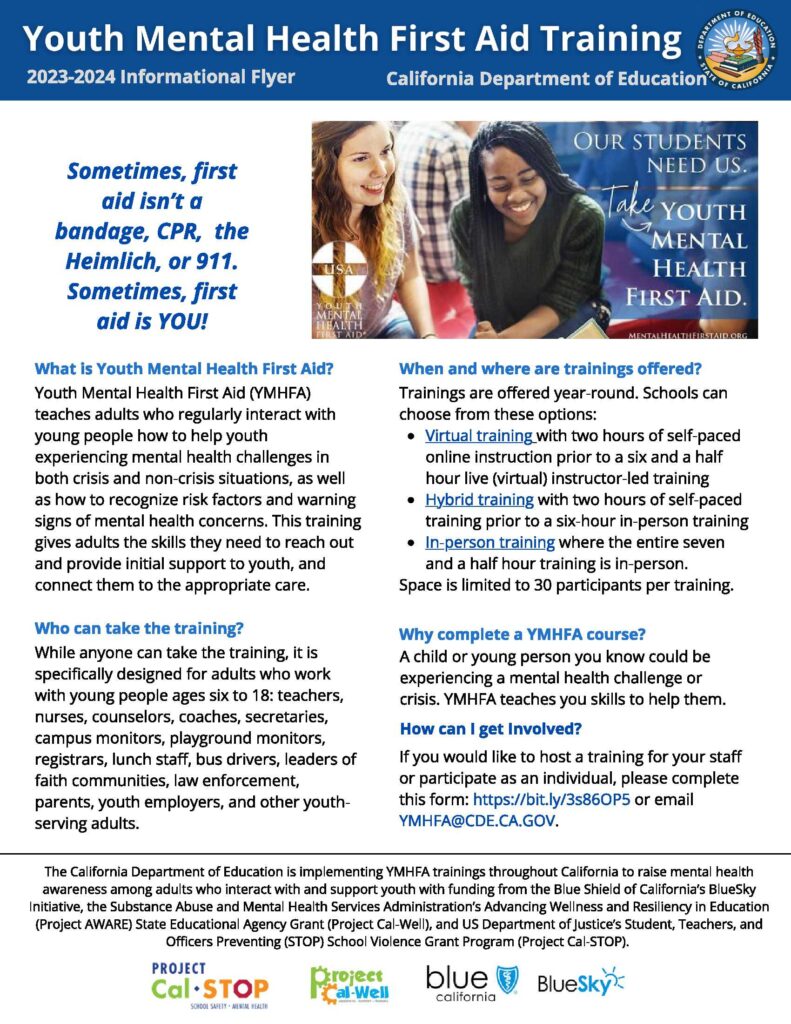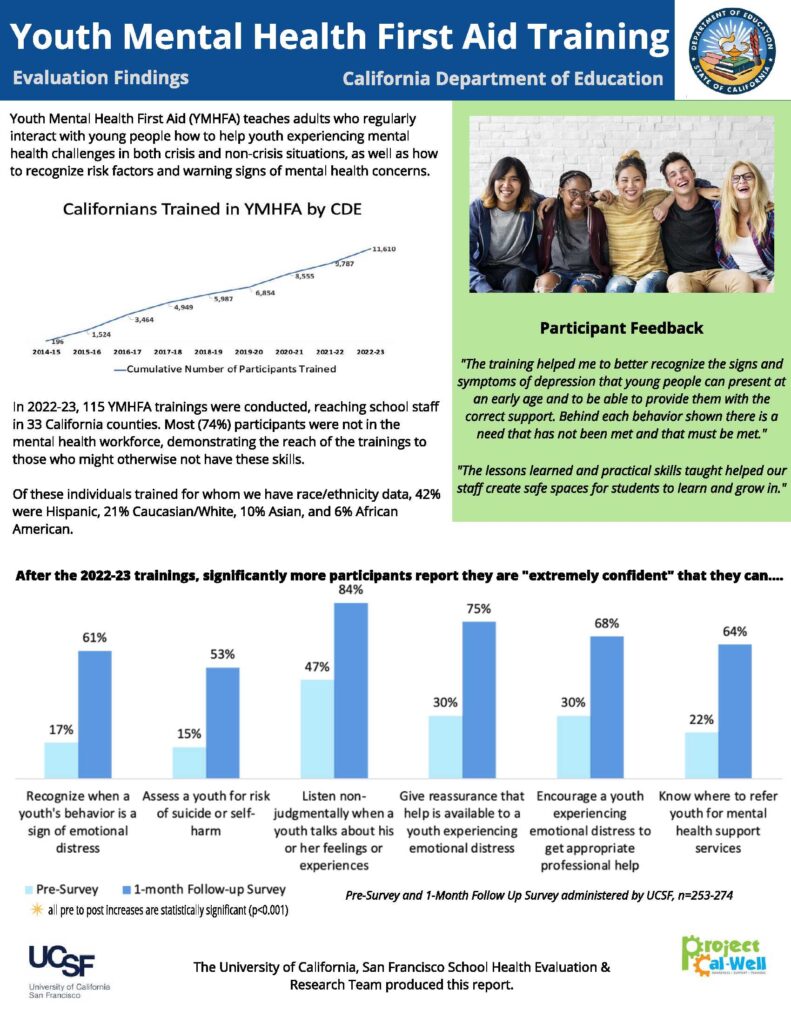See flyer for additional details:
Date: June 7, 2024
Time: 8 a.m.–3 p.m.
How: Virtual via Zoom
Please click here to register
Date: July 12, 2024
Time: 8 a.m.–3 p.m.
How: Virtual via Zoom
Please click here to register
Date: August 2, 2024
Time: 8 a.m.–3 p.m.
How: Virtual via Zoom
Please click here to register
Participants must complete 2 hours of self-paced online instruction before the instructor-led training. All trainings are offered at no cost. Please see the attached flyer for details regarding YMHFA. If this date doesn’t work, please complete the YMHFA Training Inquiry/Request Form for more options.







